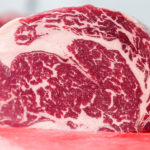By David Blyweiss, M.D., Advanced Natural Wellness
I’ve always said what you eat is one of the easiest and most effective ways to sidestep cancer. And the American Cancer society agrees. They say one third of all American cancer deaths might be diet-related. And that means they are preventable!
The solution is really pretty simple: kick cancer triggering food to the curb; embrace healthful food.
So what are these magic foods?
They’re foods that can help slow down the growth of cancer cells. Or reduce tumor size. And I’ll bet you’re eating many of them already.
Are You Suffering From...
- Love handles and a pot belly
- Romance that isn't what it used to
- Forgetfulness and inattention
- Low (or no) strength and endurance
- A sex drive that's shifted into neutral...or worse
If so...you may have Mature Male Burnout. Click here to discover more about this unique condition and what you can do about it.
- Avocados are rich in glutathione, a powerful antioxidant that attacks free radicals. This buttery fruit also supplies more potassium than bananas. And they’re a terrific source of beta-carotene.
- Broccoli, cabbage, and cauliflower all containa compound called indole-3-carbinol. This compound can combat breast and prostate cancer. It does it by converting a cancer-promoting estrogen into a more protective variety. And broccoli also has sulforaphane that encourages the production of enzymes. These enzymes neutralize free radicals and cancer-causing substances.1 Some preliminary studies also suggest these enzymes halt the growth of tumors.
- Chili peppers and jalapenos contain a fiery chemical, capsaicin. It neutralizes certain cancer-causing substances (nitrosamines). And may also help prevent stomach cancer.
- Garlic contains allium compounds that increase the activity of immune cells that fight cancer and indirectly help break down cancer causing substances. These substances also help block carcinogens from entering cells and slow tumor development. According to one study, people who eat raw or cooked garlic regularly face about half the risk of stomach cancer and two-thirds the risk of colorectal cancer as people who eat little or none.2
- Grapes, particularly red grapes, contain powerful antioxidants called bioflavonoids. These antioxidants work as cancer preventives. Grapes are also a rich source of resveratrol, which slows down the enzymes that can stimulate cancer-cell growth. Resveratrol also suppresses immune response. Plus, grapes contain ellagic acid. That’s a compound that blocks enzymes necessary for the growth of cancer cells.
- Green Tea contains certain antioxidants known as catechins. These catechins prevent cancer cells from dividing. Study after study has firmly established green tea’s ability to protect against a variety of cancers including cancer of the stomach, lung, colon, rectum, liver and pancreas. To get the most protection, drink at least 3 cups of freshly brewed green tea daily.
- Nuts contain the antioxidants quercetin and campferol which may suppress the growth of cancers. And Brazil nut contains 80 mcg of selenium, which is important for those with prostate cancer.
- Oranges and lemons contain limonene which stimulates cancer-killing immune cells that may also break down cancer-causing substances.3
- Soy foods like soy milk and tofu contain several types of phytoestrogens. These weak estrogens help prevent both breast and prostate cancer by blocking cancerous changes. They can also prevent existing cancers from spreading to other parts of the body.4But there are some precautions to consider when adding soy to your diet. Most of the soy in your local grocery store is made from genetically modified soybeans. Since no one really knows the health consequences of eating these genetically manipulated foods, it’s critical you only eat organic soy products. It’s also smart to eat soy in moderation. Too much could actually stimulate cancer growth.
- Sweet potatoes contain many anticancer properties. These include beta-carotene, which may protect DNA in the cell nucleus from cancer-causing chemicals outside the nuclear membrane.
- Tomatoes contain lycopene, an antioxidant that attacks roaming free radicals. These free radicals may trigger cancer. They also have vitamin C, an antioxidant which can prevent cellular damage leading to cancer. But the secret to getting all the cancer-fighting potential tomatoes have to offer is to cook them before eating. Plus, if you eat them with a little oil, you’ll boost absorption. Lycopene has been linked to a reduced risk of breast, prostate, pancreatic and colorectal cancer.
You’re probably already eating many of these foods. If so, I strongly recommend eating more of them.
And if you’re not, it’s time to start. Experiment. Add one or more of them to every meal. Try new recipes including these cancer-fighting superfoods. You just might find it’s the tastiest health insurance you’ve ever had.
References:
- Stey C. The effect of oral N-acetylcysteine in chronic bronchitis: a quantitative systematic review. European Respiratory Journal. 2000;16:253–62.
- Dauletbaev N. A phase II study on safety and efficacy of high-dose N-acetylcysteine in patients with cystic fibrosis. European Journal of Medical Research. 2009;14:352-358.
- Meyer-Wegner J. Ivy versus ambroxol in chronic bronchitis. Zeits Allegemeinmed. 1993;69:61-66.
- Matsuyama W. Effects of omega-3 polyunsaturated fatty acids on inflammatory markers in COPD. Chest. 2005 Dec;128(6):3817-27.






